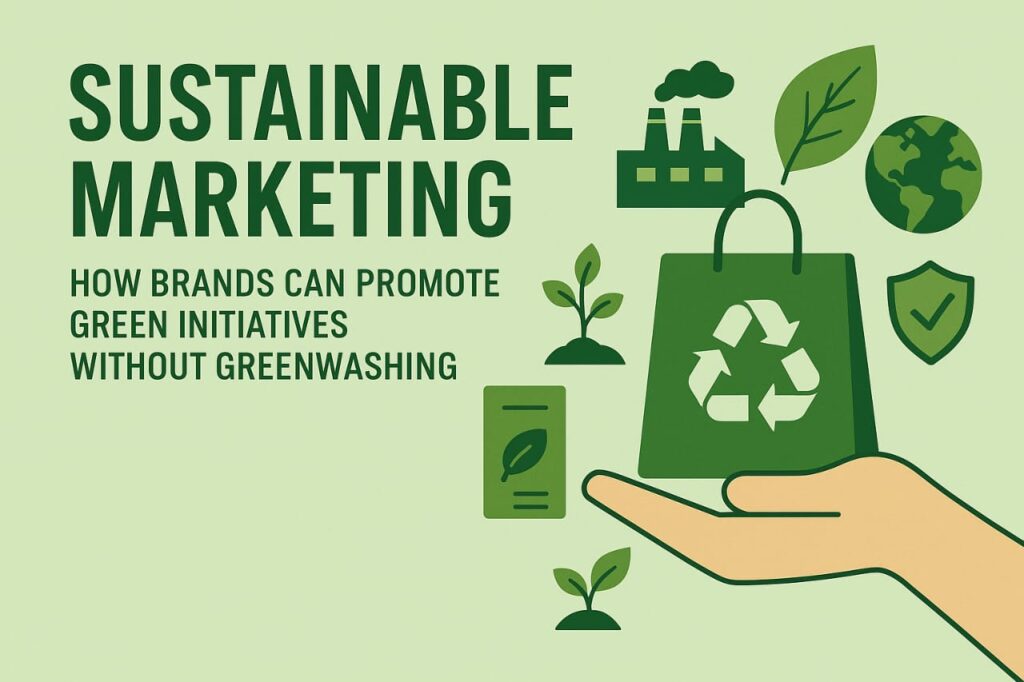What is sustainable marketing?
Sustainable marketing is conducting marketing of products or services in a way that focuses on
- environmental production
- Ethical production
- Social impacts
- Long-term value over short-term profit
It’s not about selling stuff—it’s about linking your brand with real environmental and social causes.
What is greenwashing?
Greenwashing is when a company claims to be environmentally friendly but doesn’t have actual sustainable practices. Use imprecise, misleading language like “eco-friendly” in the absence of evidence. Gives preference to advertising over meaningful action.
Example: A firm that has “natural” packing yet still uses toxic manufacturing methods is greenwashing.
Why Is Green Marketing Important in 2025?
- 75% of consumers would prefer to buy from green brands.
- Governments are implementing stricter ESG (Environmental, Social, and Governance) regulations.
- Social media enabled consumers to condemn greenwashing in public.
Being sustainable isn’t good PR—it’s a condition precedent to long-term brand survival.
How to Promote Sustainability without Greenwashing
- Be Transparent
- Offer proof of your sustainability policies.
- Publish behind-the-scenes videos, certifications, and third-party audits.
- Recognize where you are still improving. Honesty builds trust.
2. Make specific, verifiable claims.
Avoid vague terms like “green,” “eco-friendly,” and “good for the planet.” Instead say, “Our packing is constructed from 100% recycled paper,” and “We have reduced carbon emission by 30% in the past 2 years.”
3. Educate, don’t simply promote.
Sustainable marketing should:
- Inform your readers about the problem and solution.
- Share tips for eco-friendly living.
- Collaborate with environmental organizations to conduct awareness campaigns.
4. Engage your community
- Plan green challenges or activities.
- Reward customers for green behavior.
- Encourage consumer-created content highlighting how consumers are funding environmental causes.
5. Commit to long-term change.
Sustainability is not a campaign—it’s a brand value. Invest in
- Sustainable sourcing
- Renewable energy use
- Ethical labor practices
- Continuous improvement
Sustainable marketing is about walking the talk.
In 2025, consumers are smarter, more aware, and ready to support brands that:
- Make a real environmental impact.
- Communicate honestly.
- Focus on long-term sustainability, not just profit.
If you want your brand to thrive, choose authentic green marketing over greenwashing.

